
Timeline
Title
Country/Nationality
Anton Chekhov
Anton Pavlovich Chekhov was a Russian playwright and short-story writer who is considered to be among the greatest writers of short fiction in history. His career as a playwright produced four classics, and his best short stories are held in high esteem by writers and critics. Along with Henrik Ibsen and August Strindberg, Chekhov is often referred to as one of the three seminal figures in the birth of early modernism in the theatre. Chekhov practiced as a medical doctor throughout most of his literary career: "Medicine is my lawful wife", he once said, "and literature is my mistress."
Chekhov renounced the theatre after the reception of The Seagull in 1896, but the play was revived to acclaim in 1898 by Konstantin Stanislavski's Moscow Art Theatre, which subsequently also produced Chekhov's Uncle Vanya and premiered his last two plays, Three Sisters and The Cherry Orchard. These four works present a challenge to the acting ensemble as well as to audiences, because in place of conventional action Chekhov offers a "theatre of mood" and a "submerged life in the text".
Chekhov had at first written stories to earn money, but as his artistic ambition grew, he made formal innovations which have influenced the evolution of the modern short story. He made no apologies for the difficulties this posed to readers, insisting that the role of an artist was to ask questions, not to answer them.
Anton Chekhov was born on the feast day of St. Anthony the Great (17 January Old Style) 29 January 1860 in Taganrog, a port on the Sea of Azov in southern Russia. Anton Chekhov was born on the feast day of St. Anthony the Great (17 January Old Style) 29 January 1860 in Taganrog, a port on the Sea of Azov in southern Russia.
In 1887, exhausted from overwork and ill health, Chekhov took a trip to Ukraine, which reawakened him to the beauty of the steppe. On his return, he began the novella-length short story "The Steppe," which he called "something rather odd and much too original," and which was eventually published in Severny Vestnik (The Northern Herald). In a narrative that drifts with the thought processes of the characters, Chekhov evokes a chaise journey across the steppe through the eyes of a young boy sent to live away from home, and his companions, a priest and a merchant. "The Steppe" has been called a "dictionary of Chekhov's poetics", and it represented a significant advance for Chekhov, exhibiting much of the quality of his mature fiction and winning him publication in a literary journal rather than a newspaper.
By May 1904 Chekhov was terminally ill with tuberculosis. Mikhail Chekhov recalled that "everyone who saw him secretly thought the end was not far off, but the nearer [he] was to the end, the less he seemed to realise it". On 3 June he set off with Olga for the German spa town of Badenweiler in the Black Forest in Germany, from where he wrote outwardly jovial letters to his sister Masha, describing the food and surroundings, and assuring her and his mother that he was getting better. In his last letter he complained about the way German women dressed.
Chekhov's death has become one of "the great set pieces of literary history", retold, embroidered, and fictionalised many times since, notably in the 1987 short story "Errand" by Raymond Carver. In 1908 Olga wrote this account of her husband's last moments:
Anton sat up unusually straight and said loudly and clearly (although he knew almost no German): Ich sterbe ("I'm dying"). The doctor calmed him, took a syringe, gave him an injection of camphor, and ordered champagne. Anton took a full glass, examined it, smiled at me and said: "It's a long time since I drank champagne." He drained it and lay quietly on his left side, and I just had time to run to him and lean across the bed and call to him, but he had stopped breathing and was sleeping peacefully as a child ...
Books by Anton Chekhov

The Proposal
A Marriage Proposal is a one-act farce by Anton Chekhov, written in 1888–1889 and first performed in 1890. It is a fast-paced play of dialogue-based action and situational humour. A young man Lomov comes to propose his neighbour Natalya but they both...

The Cherry Orchard
The Cherry Orchard is the last play by Russian playwright Anton Chekhov. Written in 1903, it was first published by Znaniye (Book Two, 1904), and came out as a separate edition later that year in Saint Petersburg, via A.F. Marks Publishers. It opened...
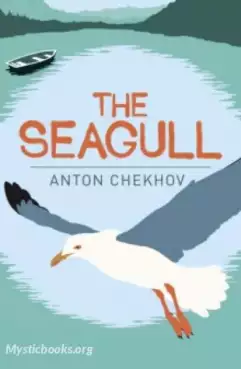
The Seagull
The Seagull is a play by Russian dramatist Anton Chekhov, written in 1895 and first produced in 1896. The Seagull is generally considered to be the first of his four major plays. It dramatises the romantic and artistic conflicts between four characte...
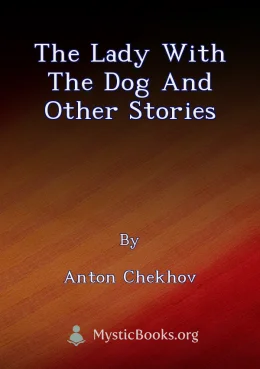
The Lady With the Dog and Other Stories
"The Lady with the Dog" is a short story by Anton Chekhov. First published in 1899, it describes an adulterous affair between an unhappily married Moscow banker and a young married woman which begins while both are vacationing alone in Yalta. It is o...
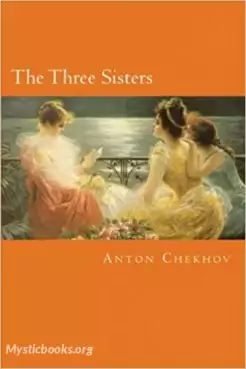
The Three Sisters
Three Sisters is a play by the Russian author and playwright Anton Chekhov. It was written in 1900 and first performed in 1901 at the Moscow Art Theatre. The play is sometimes included on the short list of Chekhov's outstanding plays, along with The...
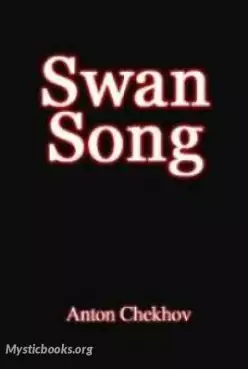
The Swan Song
In 'The Swan Song' an aging actor reminisces about his life and the parts he's played. The piece takes a tragic look at ambition and the sacrifices that must be made in order to succeed. Chekhov’s ability to capture and explore human nature and exper...
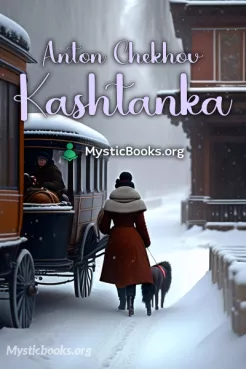
Kashtanka
The story follows the life of a small, scrappy dog named Kashtanka, who is owned by a young girl named Lidochka. Kashtanka is a loyal and devoted companion to Lidochka, and they are inseparable. However, their happy life together is disrupted when Li...
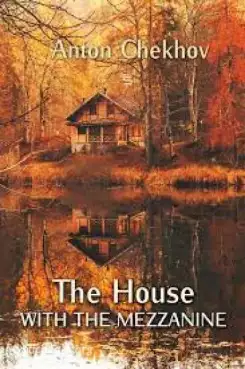
The House With The Mezzanine And Other Stories
Six short stories and a novella by the Russian master.
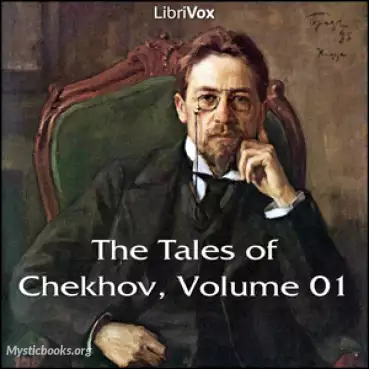
The Tales of Chekhov Vol. 01
Anton Chekhov was a Russian doctor who turned to fiction as a hobby, and quickly blossomed into one of the masters of the short story genre. Though he is arguably best known for his dramatic works, such as The Cherry Orchard, his stories are widely c...
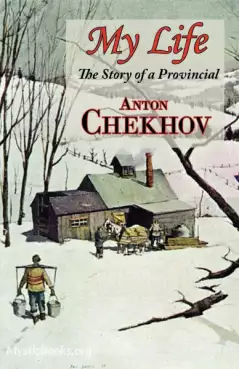
My Life: The Story of a Provincial
A provincial youth of wealth and noble status refuses to employ himself in the typical occupations of the higher classes, thus acquiring a reputation as a lazy good-for-nothing. In reality, he is intensely sensitive to the injustices perpetrated by h...
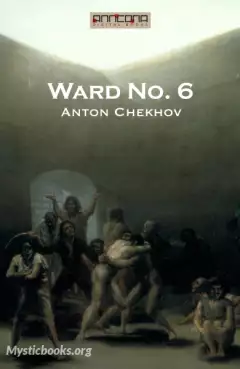
Ward No. 6
The line between sanity and insanity is blurred in this classic novella by Anton Chekhov. The disillusioned idealist Dr. Rabin is in charge of a provincial lunatic asylum, overseeing with weary, dubious policies a motley group of patients, a group th...
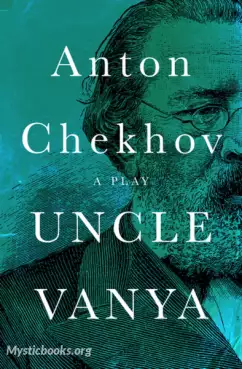
Uncle Vanya
The play portrays the visit of an elderly professor and his glamorous, much younger second wife, Yelena, to the rural estate that supports their urban lifestyle. Two friends—Vanya, brother of the professor's late first wife, who has long managed the...
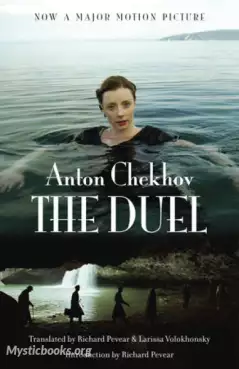
The Duel
The Duel is a novella by Anton Chekhov originally published in 1891; it was adapted for the screen by Iosif Kheifits in 1973 (as The Bad Good Man, starring Vladimir Vysotsky) and by Dover Kosashvili in 2010 (as The Duel).
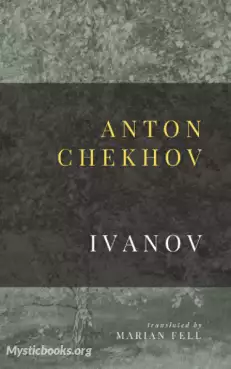
Ivanov
Ivanov was first performed in 1887, when Fiodor Korsh, owner of the Korsh Theatre in Moscow, commissioned Chekhov to write a comedy. Chekhov, however, responded with a four-act drama, which he wrote in ten days. The first performance was not a succes...
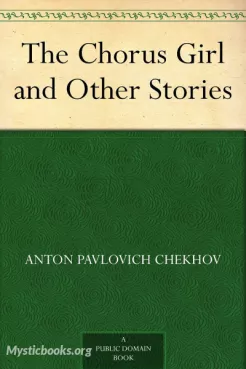
The Chorus Girl and Other Stories
In these stories, Anton Chekhov explores the human condition with his trademark wit and compassion, offering a glimpse into the lives of ordinary people struggling to make sense of their world. "The Chorus Girl and Other Stories" is a collection of...
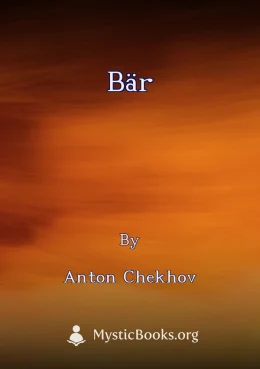
Bär
Dieses Theaterstück in einem Akt erzählt die Geschichte der verwitweten Gutsbesitzerin Jeléna Iwánowna Popówa, die noch immer um ihren verstorbenen Mann trauert. Als der Gutsbesitzer Grigóri Stepánowitsch Smirnóff bei ihr auftaucht, um eine alte Schu...
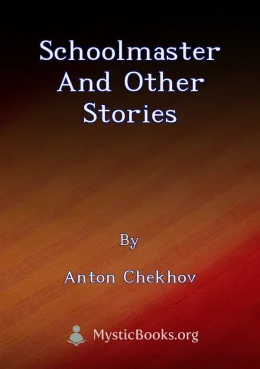
Schoolmaster and Other Stories
Anton Chekhov, renowned for his plays like "Uncle Vanya" and "The Cherry Orchard," was a master of the short story. "The Schoolmaster and Other Stories" is a collection of 30 tales that offer glimpses into the complexities of human nature and Russian...
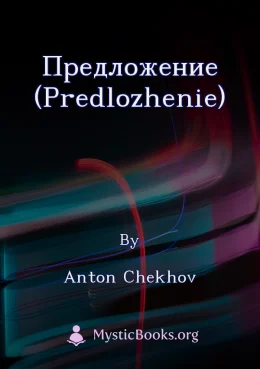
Предложение (Predlozhenie)
«Предложение» is a one-act play by Anton Chekhov, characterized by its humorous and insightful portrayal of Russian society in the late 19th century. The play revolves around a clumsy and nervous landowner, Ivan Lomov, who visits his neighbor, Stepan...
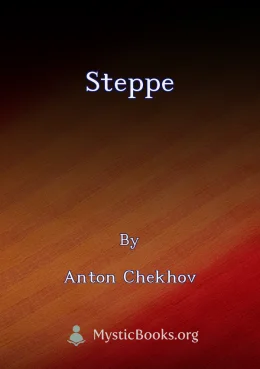
Steppe
Set in the vast and evocative Russian steppe, Anton Chekhov's 'Steppe' follows the journey of young Yegorushka as he embarks on his first trip to school. Accompanied by his Uncle Ivan, Father Christopher, and the lively Deniska, Yegorushka encounters...
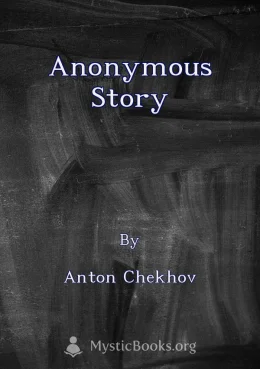
Anonymous Story
In "An Anonymous Story," Anton Chekhov delves into his signature themes of superfluous men, exploited women, and the corrosive nature of social conventions. The hapless narrator is a would-be revolutionary who infiltrates the household of the frivolo...
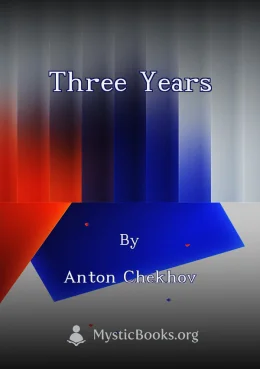
Three Years
Anton Chekhov's 'Three Years' explores the complex dynamics of love, marriage, and societal pressures. The story follows Laptev, a wealthy but unappealing man, who abandons his intelligent and devoted mistress, Polina, to marry the beautiful and ambi...
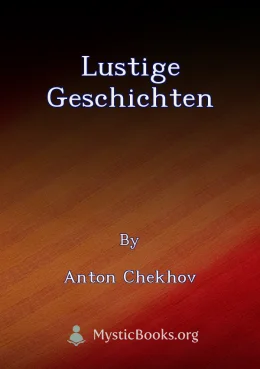
Lustige Geschichten
Anton Tschechow, ein Meister der Kurzgeschichte, präsentiert in 'Lustige Geschichten' eine Sammlung von humorvollen und melancholischen Erzählungen über das alltägliche Leben. Tschechows Geschichten zeichnen sich durch ihre scharfe Beobachtung der me...
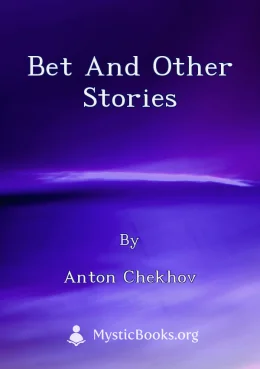
Bet and Other Stories
This collection of thirteen short stories by Anton Chekhov, known for his masterfully crafted prose, delves into the complexities of human relationships and the intricacies of everyday life in Russia during the late 19th century. Chekhov’s writing is...
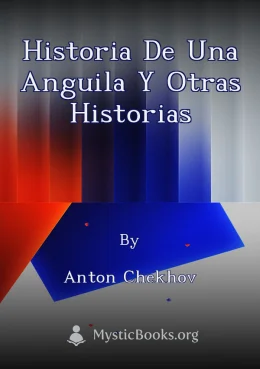
Historia de una anguila y otras historias
''Historia de una anguila y otras historias'' is a collection of short stories by Anton Chekhov, known for his masterful portrayal of ordinary lives and the complexities of human nature. Chekhov's stories often explore themes of loneliness, longing,...
Showing 1 to 24 of 28 results